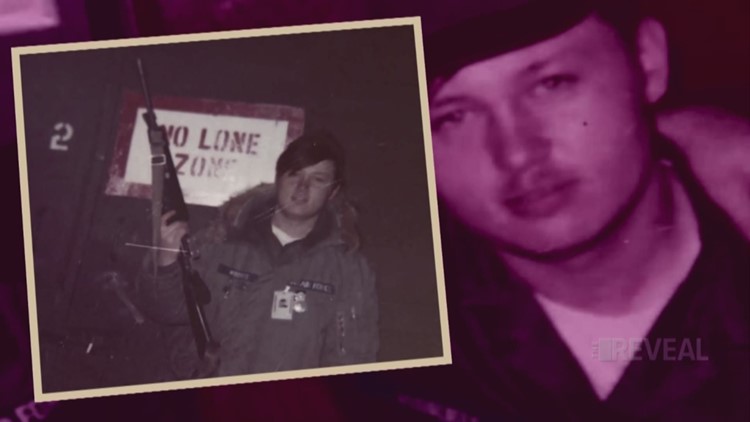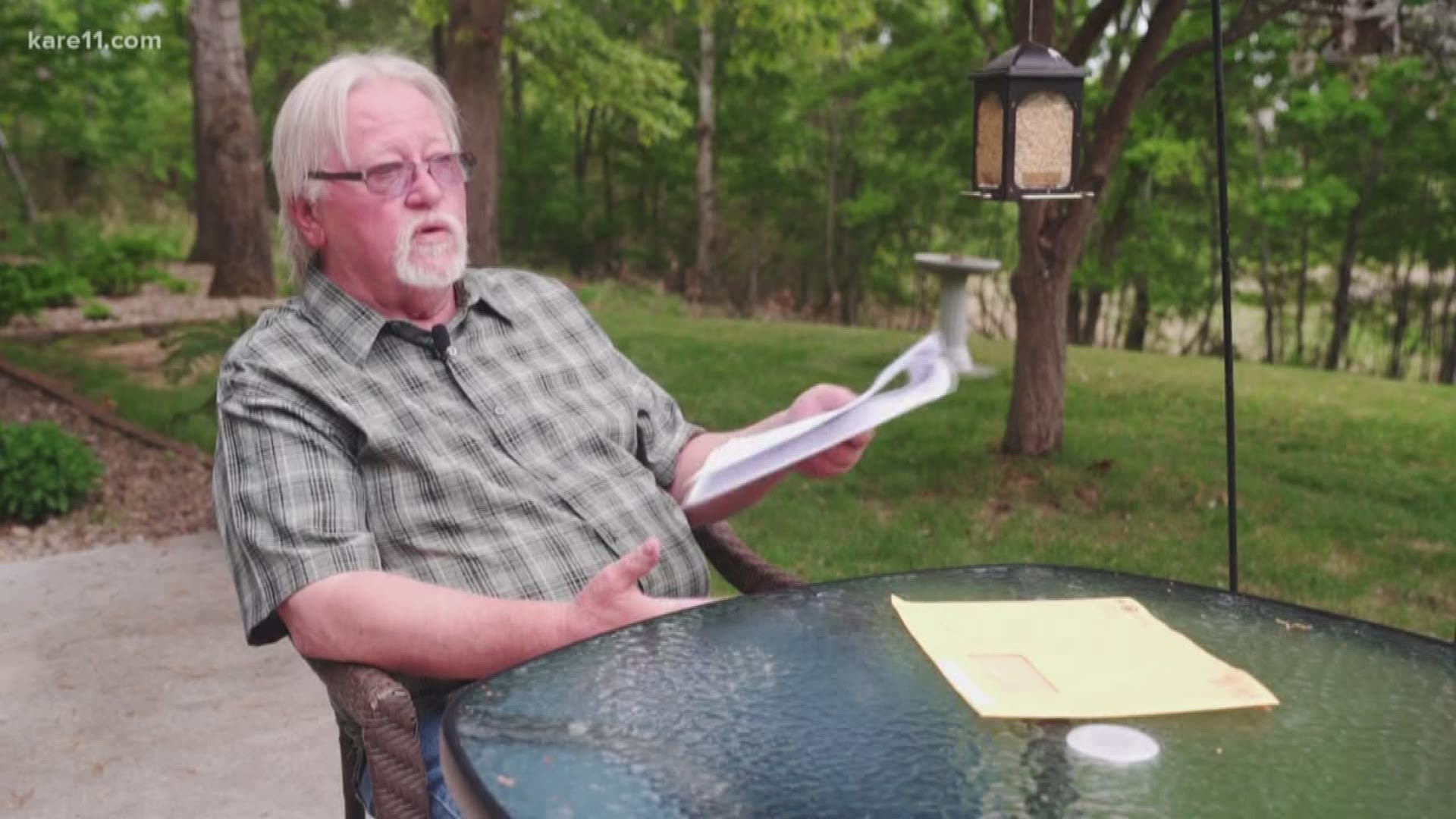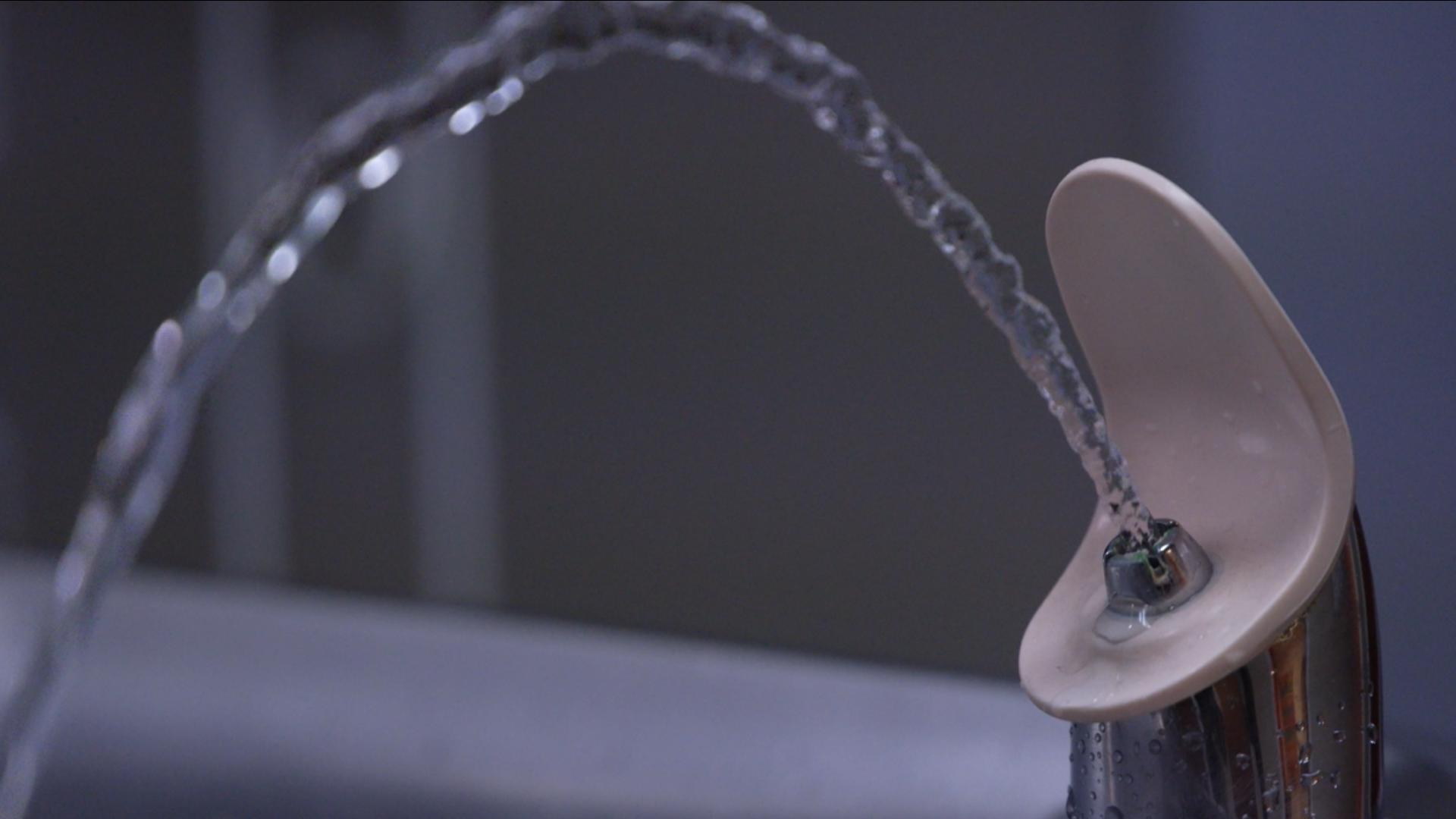Avon, Minn. – This Memorial Day, Bob Morris walks with the light step of a man with a monument sized weight lifted off his shoulders.
“Finally, after all these years,” said the Air Force Veteran.
From a large envelope with a Department of Veterans Affairs seal on it, Morris pulled out a 10-page benefits appeals ruling he had just received in the mail.
“This is my order that my service connection for Agent Orange was granted,” he said with a half-smile.
To get to this moment has been a 13-year journey.
The fight for benefits
Morris first applied for VA benefits for his coronary artery disease and type 2 diabetes in 2005. He strongly suspected his illnesses were the result of exposure to Agent Orange.
The toxic herbicide the U.S. military used to remove jungle foliage in Vietnam, was also used in Korea along the de facto border between the North and South known as the demilitarized zone or DMZ.
The VA’s website states veterans who served in Korea in or near the DMZ between April 1, 1968 and August 31, 1971, and have a disease the VA recognizes as associated with Agent Orange exposure are presumed to have been exposed to herbicides.
Morris served in Korea in 1970 and 1971 with the Airforce 6175th Security Police Squadron. However, the VA repeatedly denied the disability compensation claims he filed citing insufficient evidence.
“Nothing but denials, denials,” Morris exclaimed.
The VA’s argument was there’s no proof Morris was at the DMZ. His main duty station was KUN SAN Air Force Base, located on the shores of the Yellow Sea on South Korea’s west coast. That’s about 109 miles south of the DMZ.
But Morris contended he’d spent several weeks at the DMZ for training. “If you were in the 6175th police squadron, it was mandatory that you went to the DMZ for your combat and weapons training,” he said.
“We were basically digging into the dirt where the Agent Orange was being sprayed,” he added. The government lost much of Morris’s military records in a fire, but he had other proof he was at the DMZ.
In addition to so-called “buddy letters” from fellow service members that confirm he was at the DMZ for training, Morris has a cassette recording he mailed from Korea to his parents in St. Cloud, MN.
He showed KARE 11 the original Air Mail postage and Customs Declaration that states “cassette tape.”
In the recording, which is basically a voice letter to his family, he describes being at combat preparedness school and firing all sorts of weapons “up at the DMZ.”
Morris, reapplied for benefits again in 2012, but was again denied. That’s when Morris says the runaround from the VA really began.
The Disconnects
Morris continued to appeal his case and on January 18, 2016, he received a letter from the Regional Benefits Director in St. Paul stating that his records were being transferred to the Board of Veterans’ Appeals (BVA) in Washington. The letter also stated, “BVA will notify you when they have received your records.”
A year passed and Morris says that notification never came.
“I think they’re using pony express because I still haven’t gotten my conference,” Morris said with resigned laugh while speaking with KARE 11 in March 2017.
He said he called the Department of Veterans Affairs in January 2017 and was told he’d receive a letter by early March.
When that letter did not arrive as promised, he called the Department of Veterans Affairs again. This time he recorded the phone call.
The woman who answered was courteous, but could find no record that a letter was supposed to be mailed.
“The Board of Veterans’ Appeals are the ones that would set that up for you,” she tells Morris during the call.
The VA employee gave him two numbers he could use to reach the BVA. One was 1-800-923-8387. The other was 202-565-5436.
The recording shows she then politely offers to transfer Morris to the 202 number.
“Thank you for your service to our country,” she says. “I’m going to transfer you to the 202 number. That’s 202-565-5436. That’s the Board of Veterans’ Appeals. One moment please.”
The phone rang a few times then went to an automated message stating the number is no longer in service.
Instead of directing Morris to a new VA number, the automated directory assistance recording suggests connecting to private businesses including locksmiths, plumbers and a veterinary service.
“I needed to find out where I was in line with my video conference on my appeal, I got a locksmith instead,” Morris said as he smacked his hand in frustration on his kitchen table.
At first Morris thought it might have been a misdial by the VA employee who transferred him.
“I couldn’t believe it you know, I thought well they gave me the wrong number,” he remembers thinking. “So, I redialed the number she read off to me and I got the recording again.”
Next Morris says he tried calling the other number he’d been given, the 1-800 line. But that didn’t work either. “The phone’s ringing and the phone’s ringing,” he recalled.
Morris says it just rang dozens of times, then disconnected with no opportunity to even leave a message.
The veteran’s next call was to the KARE 11 investigative team. KARE tried calling the same numbers Morris was told he had to use to get answers about his Agent Orange benefits claim.
The results were the same.
Watch Original Investigation: VA disconnected phone leaves vets in limbo
One line was disconnected and routed the caller to locksmiths and veterinarians. Meanwhile, the 1-800 line rang for more than three-minutes, then disconnected. Both numbers given to Morris were at the time listed on the Board of Veterans Appeals official web page and instruction documents.
“I am sure I am not the only veteran out there with these problems,” Morris said.
He was not alone.
At that time, VA records showed there was a backlog of 469,098 benefits appeals claims.
Congressional Response
Bob Morris’s story of disconnects and denials made waves all the way to the nation’s capital.
“Because this was just an outrage,” Senator Amy Klobuchar (D-MN) said after watching KARE 11’s report.
Both Senator Klobuchar, and Congressman Tim Walz (D-MN) who serves on the House Committee on Veterans Affairs, began demanding answers.
RELATED: Congress presses VA to fix phone
Rep. Walz introduced legislation to help cut red tape and reform the VA’s appeals process. “The problem is, if Bob’s appeal would have been heard in a timely manner, he wouldn’t be needing to make this call,” Rep. Walz said at the time.
The Quicker Veterans Benefits Delivery Act of 2017 sailed through Congress with bipartisan support and on March 9, 2018 President Trump signed it into law.
“Our veterans put their lives on the line for us and the least we can do is ensure they are getting the benefits they have earned when they need them," said Rep. Walz about the new law. "I recognize the benefit-claims backlog wasn’t created overnight and won’t be solved immediately, but we can and must do better. This bipartisan law will enhance VA's current efforts to break the backlog by helping it become more efficient. As a result, it will help veterans get the benefits – and the care – they deserve in a timely manner."
Also because of Bob’s story, an antiquated VA call center was shut down.
“Bob Morris has done a service for all veterans across the country because what he came upon was a mess,” said Senator Klobuchar who also helped Bob finally get that benefit appeals hearing he’d been calling about in the first place.
Bob’s Agent Orange Case
Bob’s Board of Veterans’ Appeals hearing was finally held in December 2017 via video conference with Veterans Law Judge Michael Herman.
“I’m saying an extra prayer today,” Bob told KARE 11 as he walked into the Whipple Federal Building for the hearing. “And hoping for the best.”
After five more months of waiting, the judge’s ruling on Morris’s case recently arrived in the mail.
“It’s a long wait, but I finally got the good news,” Morris said while flipping through the long-awaited ruling.
“The board has granted the veteran’s claim of entitlement to service connection for coronary artery disease and diabetes,” Morris read aloud from the document.
“I’m sort of in shock yet, but it’s a good feeling finally after all those denials,” he added.
“This is just an example, we have veterans that get really a raw deal from the bureaucracy and one of my jobs and our great staff in Minnesota’s job is to work with them to get through this red tape," said Senator Klobuchar of the ruling in the Morris case. “And he had such a strong case for disability based on his service, and yet he had to wait for years and years.”
Morris continues to seek VA benefits for his bladder cancer which he believes is also linked to Agent Orange.
However, the VA does not recognize that illness as presumptive side effect of Agent Orange exposure.
It’s said to be evaluating new research as it decides whether to extend benefits to exposed vets with bladder cancer.
That’s a fight Morris says he plans to continue.
“There’s got to be some changes made, that’s for sure you know,” he said.
Our investigation of VA phone problems began after a tip from a viewer. If you want to blow the whistle on a problem, email us at: investigations@kare11.com.




